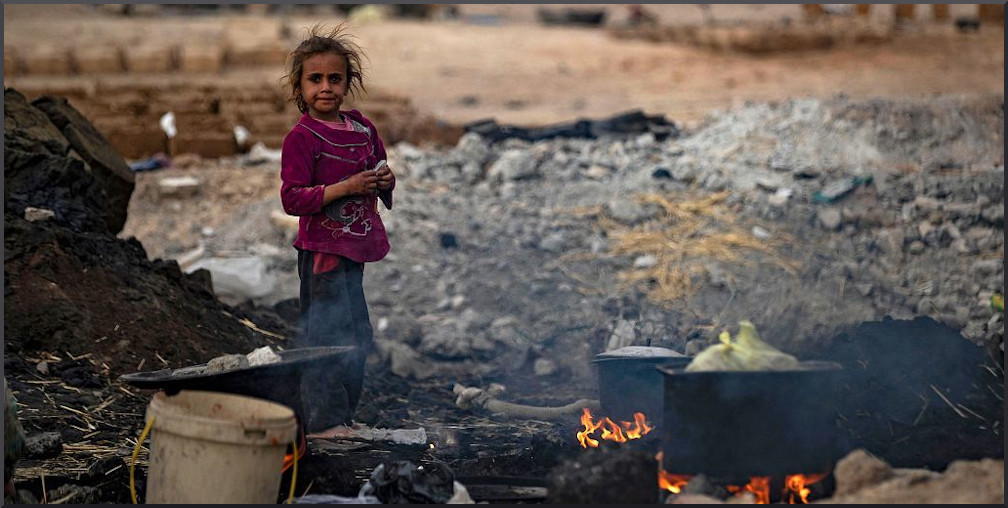by Steven Sahiounie, published on Mideast Discourse, March 16, 2023
March 15, 2023, marks the 12th anniversary of the Syrian conflict, which also follows a massive 7.8 magnitude earthquake that struck the border shared by Türkiye and Syria. The cities of Aleppo, Idlib, Latakia, and Jeblah were severely damaged with more than 5,000 dead, and hundreds of thousands left homeless.
The conflict has erroneously been labeled a civil war, or sectarian war. It was neither, but was a U.S.-NATO attack on Syria intended for “regime change.”
Before the U.S.-NATO attack, Aleppo was the industrial capital of Syria, and one of the biggest hubs of economic activity in the Middle East. Once the terrorists became entrenched in East Aleppo, they dismantled factories and destroyed business centers. As of late 2021, losses of Syrian factories run by the government amounted to around $398 million, according to the Minister of Industry Ziad Sabbagh.
Many Aleppo masters of commerce had fled to Egypt as economic migrants and set up massive factories there. If Syria were to enter a reconstruction phase, many factory owners would return to Aleppo to rebuild their lives and offer jobs to thousands of Syrian laborers.
The terrorists targeted civilian infrastructure repeatedly, such as hospitals, schools, electricity power stations, drinking water stations, and oil and gas wells. For example, Syria had previously held the second place in pharmaceutical manufacturing in the Arab world, exporting to at least 52 countries. Nevertheless, terrorists destroyed the pharmaceutical plants and warehouses, which forced Syrians to purchase medicines from abroad in hard currency rather than domestically produced medicine that had been much more affordable.
According to Elizabeth Hoff, former director of the World Health Organization in Damascus, medical machines were sitting idle in hospitals across Syria for lack of parts to be repaired. U.S. and EU companies were afraid to get penalized by sanctions, so would not conduct business with Syrian companies that require medical machines and parts.
Syria had been self-sufficient in wheat production, but the terrorists seized the wheat storage and sold them off to Europe. France was eating croissants from stolen Syrian wheat, and in Italy, they were using it for pasta. Once the U.S. military invaded Syria, they set up a base in the wheat-producing area of the northeast and allowed their local mercenaries to use the wheat to keep the Damascus government from feeding the millions of people.
After more than 350,000 died, and more than 10 million were abroad as refugees or economic migrants, the attack failed to achieve its goals. The country has been left in a state of ruins, and due to the U.S.-EU sanctions on Syria, the country has plunged to financial ruin as well.
The U.S.-EU sanctions on the Syrians are a form of collective punishment. They are not allowed to receive money from relatives abroad. They are not allowed to order machines, parts, or building materials from abroad to rebuild their homes and businesses.
The U.S. military occupies the main oil fields in Syria to prevent the oil resources from being used to supply the domestic needs of the Syrians through heating oil, gasoline, and electricity production. The Syrians only have about 30 minutes of electricity about three times per day and suffer chronic shortages of gasoline and home heating oil in snow-covered areas hit by the earthquake.
The Syrians need everything. They need infrastructure to be repaired for clean drinking water, they need jobs, which mean they need factories to get rebuilt, and they need their homes to get rebuilt. They need access to their oil resources, and they need friendly countries to restore former business ties.
The U.S. Treasury Department issued a 180-day waiver of sanctions after the earthquake, but this seems like a joke. The waiver only concerns humanitarian aid and does not cover any reconstruction needs, or family remittances from abroad.
The Syrians need the U.S. military to leave, and all sanctions to get lifted so that they can receive cash from abroad, and can send payments to foreign companies who they have ordered reconstruction supplies from.
China has brought together Saudi Arabia and Iran in a successful peace negotiation, which may prove to be an essential help to the Syrians. Saudi Crown Prince and Prime Minister Mohammed bin Salman bin Abdulaziz Al Saud, had said previously he wished to help Syria. The U.S. was imposing threats on countries, which might help Syria, but now China, Iran, and Saudi Arabia have come together and we hope for progress to follow, which will end the U.S.-NATO attack on Syria.
Steven Sahiounie is a two-time award-winning journalist and chief editor of MidEastDiscourse
The article is originally published at CGTN
 Syria Support Movement solidarity with the Syrian people
Syria Support Movement solidarity with the Syrian people





